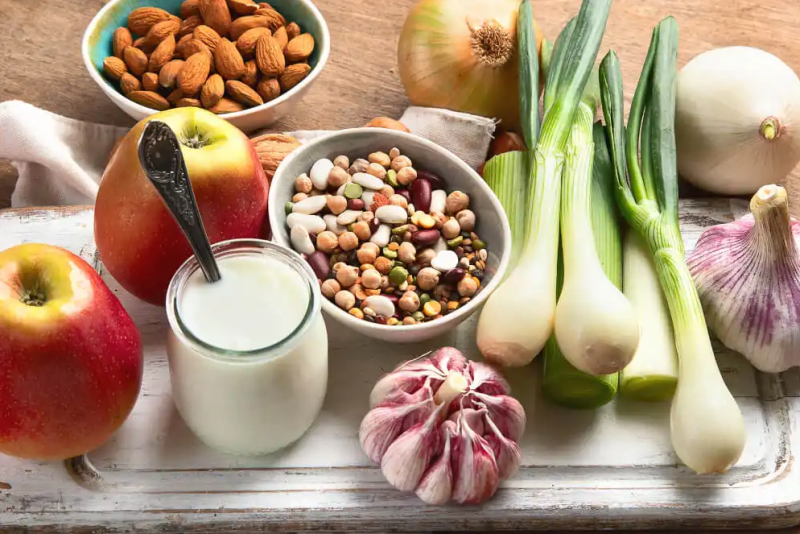
There are different medicines for stomach pain. These must be indicated by the general practitioner or specialist in the gastrointestinal tract (gastroenterologist).
The causes of stomach pain are multiple and include the following:
- Intestinal malabsorption.
- Food poisoning.
- Intestinal infection.
- Intolerance to any food.
- Constipation.
- Gastroesophageal reflux.
- Chronic gastritis.
- Inflammatory bowel disease.
The classification will be used according to their customary use to refer to medicines and pills for stomach pain. These are the 9 most used groups.
Contents
1. Antispasmodics
Antispasmodics are used for intestinal conditions because they relax the organ’s smooth muscle, interrupting or preventing painful and involuntary contractions (spasms). In this way, they are helpful when the pain is colicky.
The best-known antispasmodics are the following:
- Butylscopolamine.
- Papaverine hydrochloride.
- Pirenzepine.
- Trimebutine.

2. Anti-inflammatories
Anti-inflammatory drugs inhibit the inflammatory cascade produced by the release of cytokines. They are indicated when stomach pain is the product of intestinal inflammation, as with inflammatory bowel disease. The most prescribed are metamizole and mesalazine.
3. Anti-infectives
Anti-infectives are indicated when it is known that gastrointestinal discomfort originates due to an intestinal infection. The medication to be used, in this case, to treat stomach pain, will depend on the microorganism in question. It can be bacterial, viral, or parasitic.
In the case of being a bacterium, antibiotics are indicated. Antiparasitics are prescribed for parasitic infections. On the other hand, in viral infections, only general measures are usually noted.
The most commonly used antibiotics are ciprofloxacin, doxycycline, and metronidazole. While among the antiparasitics are also metronidazole, albendazole, mebendazole, piperazine and nitazoxanide.
Amoxicillin, metronidazole, and clarithromycin are antibiotics for stomach pain caused by chronic gastritis with suspected or confirmed Helicobacter pylori infection.
4. Antidiarrheals
Antidiarrheal drugs work like stomach ache pills, stopping the effects of diarrhea. They are responsible for inhibiting the intestine’s motility, which increases feces’ permanence in the intestinal lumen, favoring its hardening.
They are for occasional use since only general measures are recommended in case of diarrhea, such as staying hydrated with plenty of water, rehydration salts, homemade serum, and an antidiarrheal diet.
Among the most used are the following:
- Loperamide.
- Bismuth subsalicylate.
- Pectin.
5. Antiflatulents
Antiflatulents are responsible for inhibiting excess intestinal gas, a product of metabolism. They relieve stomach pain since they reduce the accumulation of flatus. Among them are simethicone and dimethicone.
6. Antacids
Antacids improve stomach pain because they work as gastric protectors. These drugs are used in gastric ulcers, gastroesophageal reflux, and gastritis. There are inhibitors of acid production, such as pantoprazole, lansoprazole, and omeprazole.
On the other hand, calcium carbonate, sodium bicarbonate, and magnesium hydroxide work as a chemical plug, decreasing stomach acidity by neutralizing acids.
And sucralfate or bismuth salts also work as gastric protectors but in another way. They generate a protective barrier that prevents the acid from directly contacting the organ wall.
7. Stimulants of intestinal motility
These medications for stomach pain are used when the source of the discomfort is constipation, slow gastric emptying (feeling of fullness), or in the presence of reflux and vomiting.
They speed up gastrointestinal transit, so the content remains in contact with the gastric and intestinal walls for less time. These include domperidone, metoclopramide, and cisapride.
8. Laxatives
Laxatives act through different mechanisms in case of stomach pain due to constipation. Thickeners or bulk-formers, such as Metamucil, absorb more fluid in the intestines and increase stool volume.
On the other hand, the softeners are in charge of lubricating and softening the formed feces to make evacuation easier. On the other hand, osmotic laxatives (such as milk of magnesia, lactulose, or sorbitol) cause fluid retention in the intestines, making the stool softer and easier to pass. They should be consumed with plenty of water.
Finally, stimulant laxatives (bisacodyl) irritate the intestinal mucosa, with the consequent increase in intestinal transit, accelerating the emptying of feces.
9. Probiotics
Finally, we have probiotics, which do not have a mechanism to improve stomach pain but are supplemented with beneficial microorganisms for the intestinal flora. In the long term, they make it possible to regulate intestinal transit and indirectly soothe discomfort related to abdominal pain due to alterations in the microbiota.

Is it always necessary to take medicines and pills for stomach pain?
It is the doctor, after the evaluation, who decides which medications are necessary for stomach pain. In the case of children, the drugs are the same as for adults, but their doses and presentations vary.
On the other hand, the amount of body water in children is less, so they are more prone to dehydration. Based on this, particular caution should be taken against infant diarrhea.
Many times, stomach pain improves when simple, everyday measures are taken. It is good to opt for a diet free of processed sugars and high-fat foods and avoid alcoholic or carbonated beverages.